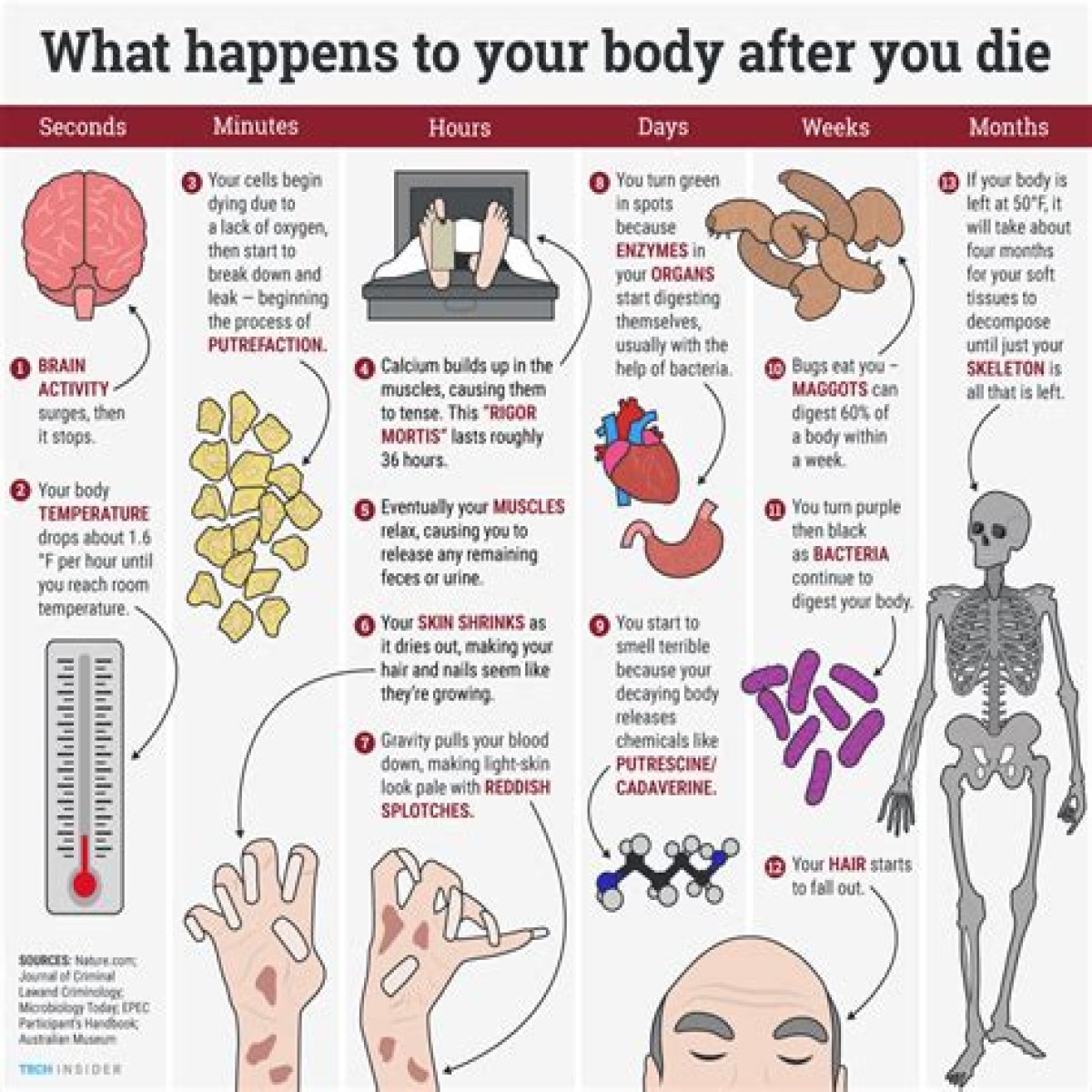When you die, your body is transported to a morgue or mortuary. Depending on the circumstances of the death, an autopsy may be performed. The body is then typically transported to a funeral home for preparation for viewing, burial, or cremation.
On top of this, What happens when a person dies?
Some parts of the body may become darker or blue-colored. Breathing and heart rates may slow. In fact, there may be times when the person’s breathing becomes abnormal, known as Cheyne-Stokes breathing. Some people hear a death rattle, noisy breathing that makes a gurgling or rattling sound.
In the same way, Can u hear after u die?
Hearing is widely thought to be the last sense to go in the dying process. Now UBC researchers have evidence that some people may still be able to hear while in an unresponsive state at the end of their life.
In this way, What happens right before you die?
When someone is dying, their heartbeat and blood circulation slow down. The brain and organs receive less oxygen than they need and so work less well. In the days before death, people often begin to lose control of their breathing. It’s common for people to be very calm in the hours before they die.
further, How does it feel when you die?
Intense feelings can be frightening, but they usually ease over time. You might experience: shock and feelings of unreality, particularly in the days after the death.
The same way, What happens to the soul 40 days after death?
It is believed that the soul of the departed remains wandering on Earth during the 40-day period, coming back home, visiting places the departed has lived in as well as their fresh grave. The soul also completes the journey through the Aerial toll house finally leaving this world.
Furthermore, What is the body temperature of a dead person?
The average living human being has a body temperature of 98.6 degrees F. However when a person dies, their body begins to cool, at a rate of about 1-2 degrees every hour. Eventually, the body’s temperature will equal the room’s ambient temperature.
Likewise, What to do immediately after someone dies?
Get a legal pronouncement of death. Tell friends and family. Find out about existing funeral and burial plans. Make funeral, burial or cremation arrangements. Secure the property. Provide care for pets. Forward mail. Notify your family member’s employer.
Not only that, What happens to the body immediately after death?
24-72 hours after death — the internal organs decompose. 3-5 days after death — the body starts to bloat and blood-containing foam leaks from the mouth and nose. 8-10 days after death — the body turns from green to red as the blood decomposes and the organs in the abdomen accumulate gas.
Still and all, Where does the soul go after it leaves the body?
“Good and contented souls” are instructed “to depart to the mercy of God.” They leave the body, “flowing as easily as a drop from a waterskin”; are wrapped by angels in a perfumed shroud, and are taken to the “seventh heaven,” where the record is kept. These souls, too, are then returned to their bodies.
In this way, Do ambulances take dead bodies?
In the majority of circumstances the obviously dead, or pronounced dead should not be transported by EMS. As pointed out above, EMS agencies and hospitals should work together on defining rare circumstances when it may be necessary for EMS to transport deceased individuals to hospitals.
More Recommended Articles:
whataburger history what kind of car is lightning mcqueen what to watch discovery plus what foods are high in potassium what does 444 mean
